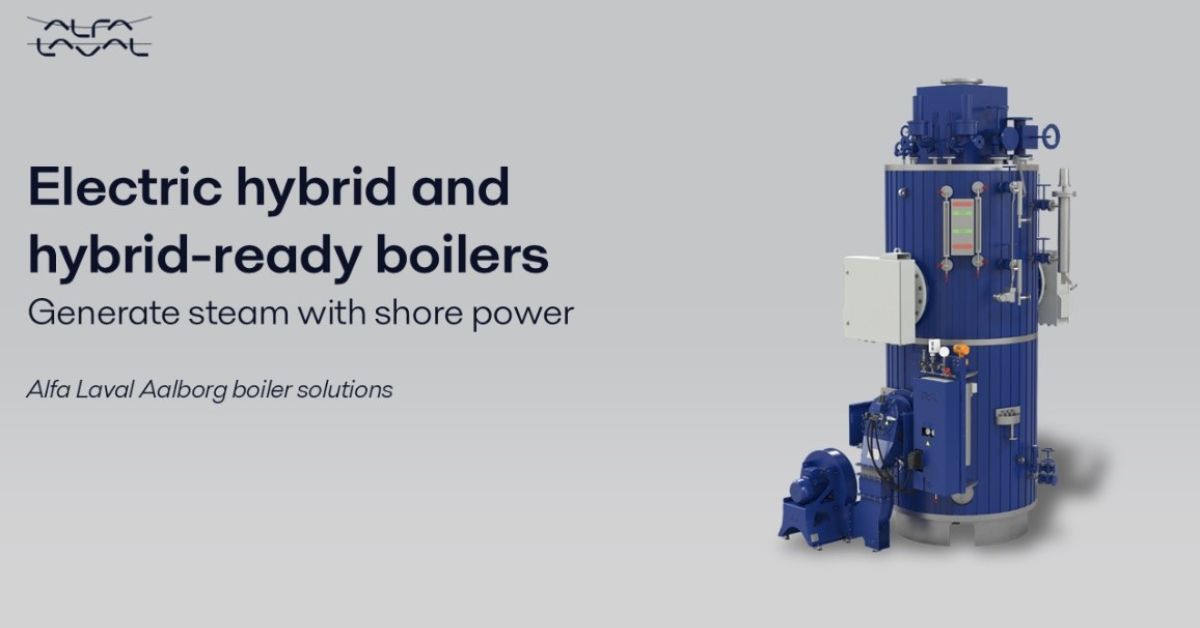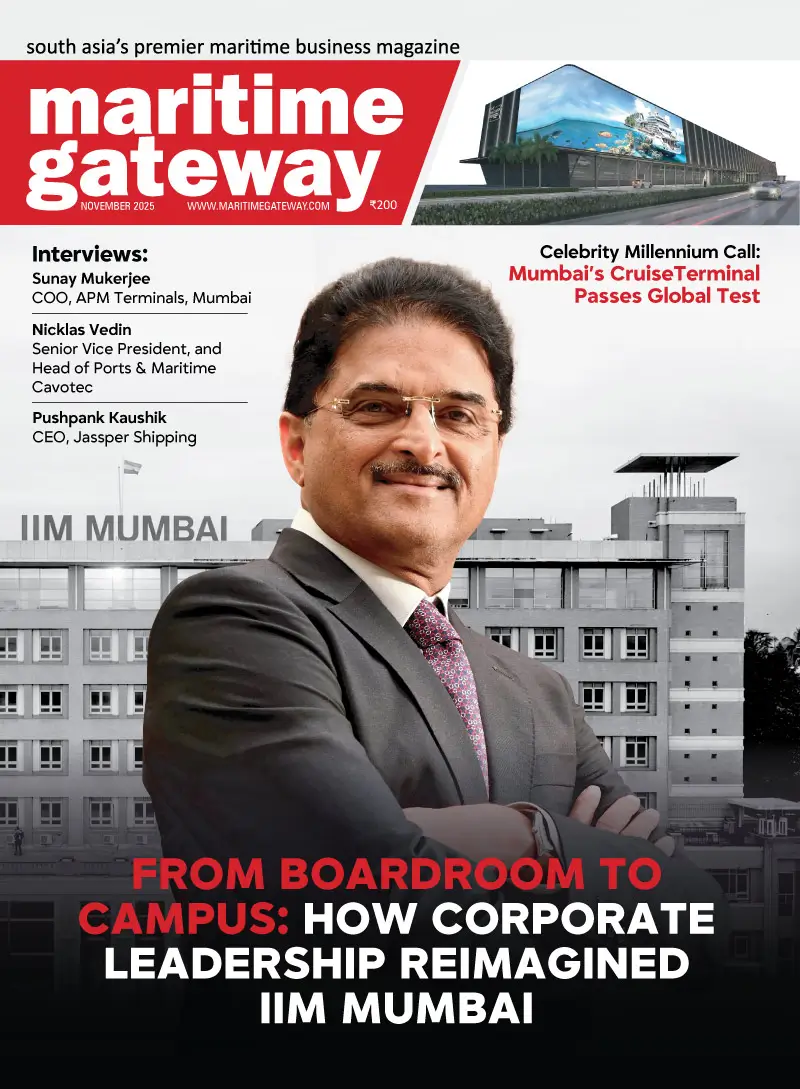Driven by the need for decarbonization and to advance fuel flexibility, Alfa Laval is leading the way with the first fuel-flexible marine boiler solutions that can be delivered as electric hybrid or hybrid-ready boilers. This innovation supports shipowners in reducing emissions, saving fuel, and staying ahead of evolving green port regulations. Since its launch in early 2025, the solutions have generated strong interest and secured multiple orders.
Rising demand for hybrid boilers and shore power infrastructure
As the maritime industry accelerates its transition toward alternative fuels and reduced emissions, both vessel and port infrastructures are evolving to support this transformation. Shipowners are investing in vessels equipped for future fuel flexibility, while ports worldwide are focusing on adopting onshore power supply (OPS) to cut emissions while vessels are at berth.
Regulatory policies are a major force behind this shift. FuelEU Maritime, California’s At-Berth Regulation, and China’s strict OPS mandates—alongside the IMO’s upcoming Northeast Atlantic ECA—are driving demand for hybrid boilers that enable vessels to meet emissions requirements while docked.
With a rapidly growing number of ports investing in onshore power supply (OPS), the shift toward cleaner port operations is accelerating. In this evolving landscape, Alfa Laval Aalborg marine boilers offer shipowners a powerful path forward, offering fuel flexibility and hybrid electric readiness to meet both current and future demands.
“We are constantly innovating to deliver future-proof solutions that help our customers to stay ahead in their decarbonization journey,” says Jeppe Jacobsen, Head of Global Sales, Alfa Laval. “Our first-of-its-kind hybrid and hybrid-ready boilers combine proven performance with forward-thinking design, providing the flexibility to adapt to new fuels, integrate shore power, reduce emissions, and meet evolving environmental regulations both at sea and in port.”
Unmatched flexibility and operational efficiency
The new Aalborg boilers can be delivered as hybrid and hybrid-ready solutions, with both combustion and electric capabilities. The boiler platform is fuel-flexible, allowing boilers to be configured for operation with oils and biofuels, and one additional alternative fuel—LNG, methanol, or ammonia in the future—based on the shipowner’s choice. The hybrid- ready configuration is designed to operate solely on fuel but is prepared to have an electrical connection installed at a later stage.
The future-proof design presents a powerful pathway for decarbonizing port operations and boosting energy efficiency. Whether required or not, connecting to the onshore power while in port allows zero-emission steam production without direct fuel costs or emissions from the vessel, while minimizing load on the auxiliary engine.
Advanced technology and future-proof design
The hybrid boiler solutions are built on deep knowledge of thermal applications and fuel properties, supported by research at Alfa Laval Test & Training Centre in Aalborg, Denmark.
The boiler’s fuel configuration ensures full steam output using the selected alternative fuel, with performance equal to conventional fuel operation. Every component of the boiler solution is engineered and manufactured in-house.
The electrical part or output is integrated into the boiler body and sized according to the required steam capacity. Operating in incremental steps, it ensures efficient and flexible steam generation. To accommodate the electrical part or output, internal design adjustments are made without compromising boiler performance. Since retrofitting is not an option, the boiler must be delivered as hybrid or hybrid-ready from the start to enable future electric operation.
“Shipowners are already embracing the concept. Since launching the hybrid-ready solution at the beginning of 2025, Alfa Laval has secured many orders,” says Jeppe. “The adaptability of our boiler platform gives shipowners long-term confidence, and they appreciate the peace of mind and flexibility that comes with knowing they are prepared for stricter regulations and evolving fuel availability.”









